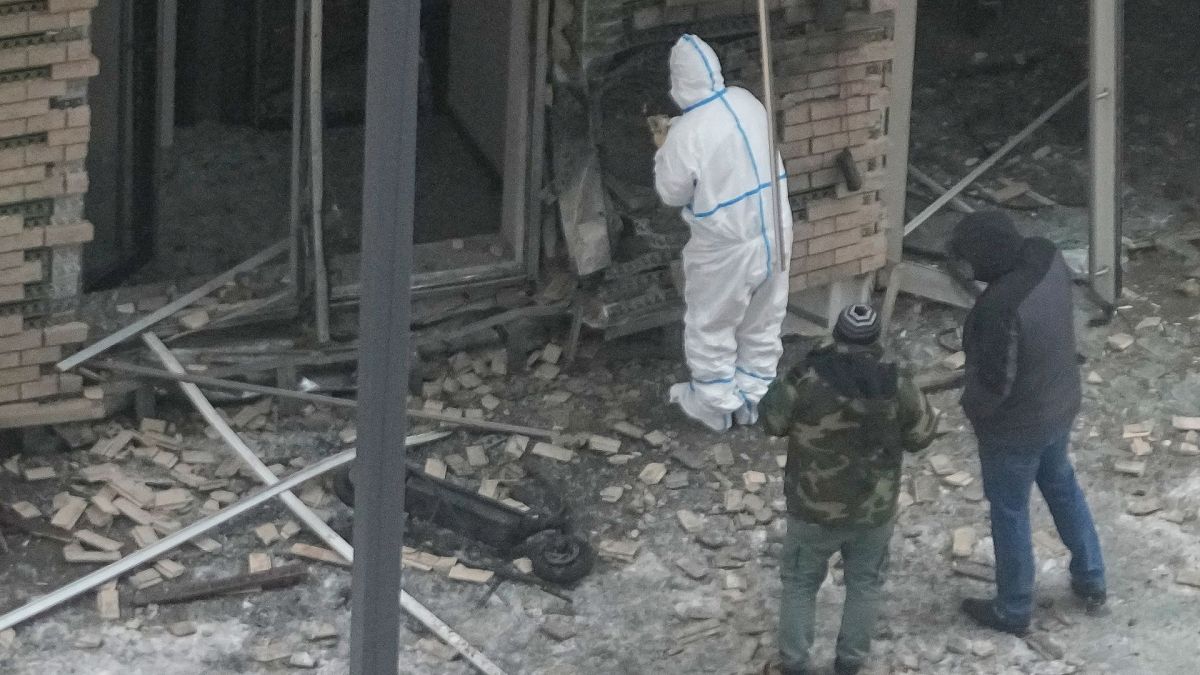COP29: Summit ends with $300bn a year climate finance deal

After concerns climate talks in Baku could collapse, the gavel came down on a finance deal in the early hours of the morning.
The Western world has agreed to pay $300bn a year to finance emissions reduction and climate adaptation in the developing world from 2035, but developing countries from Cuba to India slammed the deal as too little, too late.
The gavel came down on the deal in the middle of the night local time after a tense few days of negotiations.
Climate-vulnerable nations walk out of finance meeting
It has been a tumultuous couple of days where the possibility of talks collapsing has seemed close at times.
Developing countries dismissed as “a joke” an offer on Friday (22 November) by wealthy industrialised nations including the EU, US and Japan of $250bn a year from 2035.
Around 3pm today, a revised proposal saw the offer raised to $300bn according to civil society observers who were in the room.
The ‘least developed countries’ (LDCs) group promptly declared that was unacceptable before the Alliance of Small Island States (AOSIS) joined them in walking out. They later clarified that they hadn’t given up on the finance talks entirely but it was evident their patience was wearing thin.
The G77+China group, which comprises most of Latin America, Africa and Asia, had signalled it would accept a headline figure of $500bn for the ‘new collective quantified goal’ (NCQG) intended to replace the current $100bn annual financing target. But this appears to have been beyond the pale for the wealthy Western nations.
US climate envoy John Podesta was harangued as he left the meeting room following a walk-out by groups representing the world’s least developed country and small island states. Climate campaigners shouted “shame” as they accused the Biden administration of reneging on rhetoric about paying a fair share.
“Of course, it will not be better under Trump, but it’s really shameful what they’re doing under Biden,” said Victor Menotti, director of the International Forum on Globalization, after Podesta was hustled out of a side door by security personnel with television crews in hot pursuit.
“This is not the climate and environmental justice agenda that he got elected on,” Menotti said.
Talks continued behind closed doors
There followed a long period of relative calm, with talks ongoing behind closed doors.
“We have all been working very hard over the past two weeks and I know that none of us want to leave Baku without a good outcome,” COP29 President Mukhtar Babayev told a plenary session which kicked off just after 8 pm local time on Saturday.
“The eyes of the world are rather focused on us however time is not on our side. I ask you to now step up your engagement with one another.”
It cleared the decks of a raft of procedural matters and even new rules on global markets for carbon credits, a controversial second major topic of debate in what was dubbed the ‘finance COP’.
Another short part two of the plenary then started not long after midnight. It was quickly adjourned causing much confusion in the room. Babayev returned to the mic to tell delegates they needed 20 to 25 minutes to finalise documents.
The all-important NCQG was left for last and the gavel finally went down on the finance deal in the early hours of Sunday morning.
World News || Latest News || U.S. News
Source link



